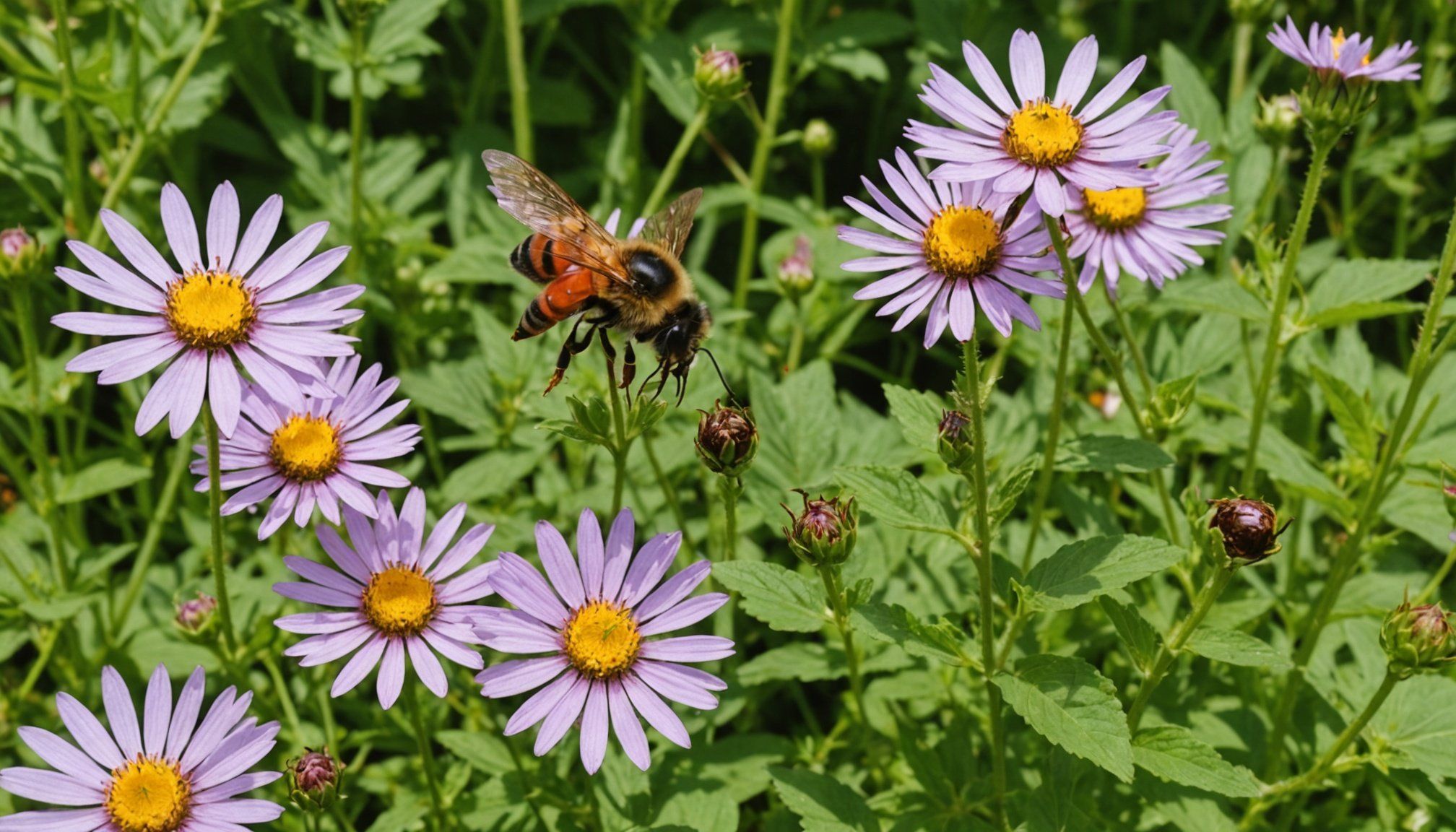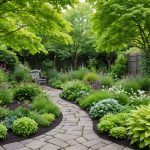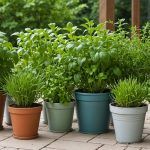Introduction to Pollinator-Friendly Gardening
Every urban space, particularly in Bristol City Centre, holds immense potential for enhancing urban biodiversity. An effective way to do this is by introducing pollinator-friendly plants into gardens. In urban ecosystems, pollinators such as bees, butterflies, and other insects are crucial for plant reproduction. Their presence ensures the health of greenery within city environments, playing a pivotal role in garden flourishing and sustainability.
Bristol’s climate, characterised by mild and wet conditions, is particularly suitable for cultivating a diverse range of plants. This makes it an ideal location for both seasoned and novice gardeners to experiment with various pollinator-friendly plants. Introduce species that bloom at different times of the year to provide consistent food sources for pollinators, thereby maintaining urban biodiversity.
Also read : Essential Guidelines for Safely Removing Asbestos During UK Home Renovations
By incorporating these plants into city gardens, Bristol residents can enjoy numerous benefits. Urban landscapes will not only become more attractive but will also support ecological balance. Moreover, creating pollinator havens within urban settings contributes significantly to the broader environmental health, promoting a greener, more sustainable environment for everyone. Engaging in this practice empowers individuals to contribute positively to local ecosystems.
Local Flora and Biodiversity
The thriving urban biodiversity in Bristol owes much of its success to the city’s diverse range of native plants. These plants play a crucial role in maintaining ecological balance by supporting local pollinator species. Pollinators such as bees and butterflies rely on these native plants, facilitating the transfer of pollen and aiding in plant reproduction, which in turn supports the food web.
Also read : Essential Tips for Constructing a Fire-Resistant Garden Shed in the Scenic Countryside of Wales
Examples of native plants that effortlessly flourish in Bristol’s urban setting include the purple loosestrife, which provides vibrant blooms throughout summer, and the red campion, known for its striking pink flowers that attract bees and moths. Another notable example is the common bluebell, which offers vital nectar resources early in the year for foraging bees.
The impact of local flora on urban biodiversity is significant. Native plants create habitats and food sources for various species, enhancing resilience against environmental change and promoting a healthy ecosystem. By fostering a diverse range of plants, urban areas like Bristol become havens for wildlife, which enriches community environments and augments the city’s natural beauty. Encouraging native plant growth is an effective step towards boosting biodiversity within urban landscapes.
Key Pollinator-Friendly Plants for Bristol City Centre
Selecting the right pollinator-attracting plants can transform any garden into a thriving ecosystem. Discover some of the best plants for pollinators to enhance your green spaces.
Lavender
Lavender is a garden favorite, known for its visual appeal and aromatic scent. It thrives in well-drained soil with full sunlight, making it a perfect fit for many urban garden settings. Lavender attracts a variety of pollinators, notably bees and butterflies, that are drawn to its nectar-rich flowers. With proper care, which includes pruning after flowering, this plant offers seasonal interest from early summer to autumn.
Buttercup
Buttercups prefer damp conditions often found in meadows or beside ponds. These cheerful yellow flowers support local pollinator species such as hoverflies and bees. Their low maintenance makes them ideal for inclusion in diverse habitat gardens. Light pruning and ensuring moist soil conditions are key to their successful growth.
Foxglove
Foxgloves flourish in partial shade with moist, well-drained soil. Their towering stalks and tubular flowers are incredibly attractive to bees, providing essential nectar. They are well-suited to urban settings, especially in shaded corners, providing elegance and utilitarian value to pollinator gardens.
Cosmos
Cosmos presents a vibrant cosmetic appeal with its open flowers and feathery foliage. They are particularly alluring to bees, butterflies, and beneficial insects. Easy to care for, Cosmos require little more than a sunny spot and regular watering. Deadheading prolongs the blooming period, enhancing garden aesthetics and sustaining pollinator populations.
Care Tips for Pollinator Gardens
Successfully managing a pollinator garden involves consistent garden maintenance and a dedication to sustainable gardening. Key practices start with ensuring your plants receive adequate water; however, frequency and amount can vary depending on Bristol’s weather conditions. In a temperate climate like Bristol’s, it’s advised to water deeply but infrequently, encouraging roots to grow stronger and deeper.
When it comes to soil maintenance, start with a quality, organic-rich base. Incorporating compost can significantly enhance soil structure, improve drainage, and provide essential nutrients. Consistent mulching helps retain moisture, regulate soil temperature, and suppress weeds.
Feeding your plants with natural substances like compost tea or fish emulsion encourages the healthy growth of pollinator-friendly plants without harming the delicate ecosystem. Reducing chemical use in your pollinator garden is crucial. Synthetic fertilizers and pesticides can deter or harm pollinators, undermining efforts to create a supportive environment.
By dedicating attention to plant care, such as deadheading spent flowers and pruning, you encourage a continuous bloom cycle, offering a sustained food source for pollinators. Implementing these practices contributes to the thriving biodiversity essential for a successful garden.
Resources for Bristol Gardeners
When looking to enhance your gardening skills in Bristol, tapping into various local resources can make the journey more fruitful. Several gardening organizations focus on promoting pollinator habitats crucial for maintaining biodiversity. Engaging with these organizations allows gardeners to contribute positively to the ecosystem.
For those interested in sustainable gardening practices, community support and connections are invaluable. You can find multiple resources that recommend environmentally friendly techniques. These resources guide on using native plants, conserving water, and improving soil health without harmful chemicals.
To gain support and share experiences, consider joining local gardening groups or forums. These communities often host events and workshops that are perfect for networking and learning. By engaging with fellow enthusiasts, you can exchange tips and insights valuable for problem-solving and fostering a thriving garden.
Connecting with these gardening communities can be done through:
- Social media platforms dedicated to Bristol gardeners
- Local events or meet-ups focused on gardening themes
- Community gardens where hands-on learning and collaboration are encouraged
These connections not only provide support but also inspire creativity and innovation in your gardening endeavors.











